 | Wenkang 'Winko' An, PhD
Winko received his Ph.D. in Electrical and Computer Engineering from Carnegie Mellon University in 2021, under the supervision of Prof. Barbara Shinn-Cunningham. His dissertation work sought to study the neural representation of human auditory attention. Specifically, he decoded attentional control from multimodal neuroimaging measures (EEG and fMRI) and fused the information in these modalities through a representational similarity analysis framework. In addition, he designed multiple auditory brain-computer interface paradigms, in which he decoded attention from single-trial EEG signals using machine learning. He joined the Nelson and Wilkinson Labs in 2021 as a Rosamund Stone Zander Translational Neuroscience Center Postdoctoral Fellow. Winko's goals here are to understand the neural mechanism underlying impaired abilities in patients with a rare genetic condition, and build computational models that can reliably predict autism and developmental outcomes from EEG. |
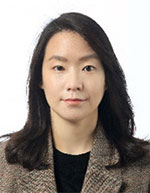 | Haerin Chung, PhD
Haerin received her PhD. from University of Chicago in 2022, where she was a member of the Infant Learning and Development Laboratory at the Center for Early Childhood Research. At UChicago, her graduate work in Amanda Woodward’s lab focused on the link between infants' experience and perception of actions. She investigated the neural correlates that underlie infants’ perception of actions that are associated with infants' experience using an integration of EEG and behavioral methods. Here at the LCN, Haerin seeks to explore the developmental changes in EEG measures, including the trajectory of functional connectivity, of those with, without, and at-risk for autism. Haerin is also interested in understanding how early indices of EEG are associated with different social-cognitive outcomes later in development. |
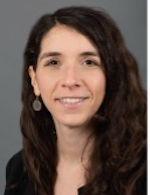 | Renata Di Lorenzo, PhD
Renata received her Ph.D. in Developmental Neuroscience from Utrecht University, the Netherlands, in 2020, under the supervision of Prof. Chantal Kemner. In her dissertation, she used two neuroimaging techniques, EEG and NIRS, to investigate individual differences in face and emotion processing during the first years of life. Her research interests revolve around understanding brain-behavior links in childhood and defining the factors contributing to typical and atypical cognitive, social, and emotional development. She joined the Laboratories of Cognitive Neuroscience (LCN) in winter 2021, and here she is exploring differences in developmental trajectories of executive functions and emotion regulation from infancy to childhood, in high- and low-income countries. |
 | Ellen Jopling, PhD Ellen received her PhD in Clinical Psychology from the University of British Columbia, Canada, in 2024, under the supervision of Dr. Joelle LeMoult. She completed her pre-doctoral internship at Boston Children’s Hospital/Harvard Medical School. Her dissertation elucidated the social and cognitive factors impacting the biological embedding of stress during adolescence, focusing on both the hypothalamic-pituitary-adrenal (HPA) axis and the immune system. Her program of research aims to improve our understanding of the mechanisms, the individuals, and the pathways through which stress gets ‘under the skin’ to impact both mental and physical health across the first two decades of life. Since joining the Nelson Lab in 2024, Ellen’s work has focused on developmental cascade frameworks that examine how severe early life adversity influences long-term neurobiological development. |
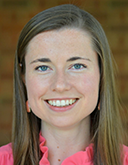 | Caroline Kelsey, PhD
Caroline received her Ph.D. in Psychology from the University of Virginia in 2020, under the supervision of Dr. Tobias Grossmann. Her dissertation research explored the role of the gut microbiota in infant brain and behavioral development. As part of her research, she used functional Near-Infrared Spectroscopy (fNIRS) to characterize resting state functional brain networks in newborn babies. She was thrilled to join the Laboratories of Cognitive Neuroscience in 2020. Here, she is working on an ongoing longitudinal project examining neural, cognitive, and behavioral predictors of emotion processing. Caroline is interested in using fNIRS and eye-tracking to identify early-emerging markers of later social-emotional functioning. |
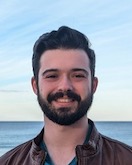 | Dashiell Sacks, PhD
Dashiell received his PhD at the Thompson Institute, University of the Sunshine Coast, Australia in 2023, under the supervision of Professor Daniel Hermens. During his PhD, Dashiell worked on the Longitudinal Adolescent Brain Study (LABS), a world-first research project investigating adolescent brain development using a combination of neuroimaging (EEG & MRI), neurocognitive, and psychological assessments. His thesis investigated EEG phase-amplitude coupling, a measure of synchronization between neural activity as a potential neurobiological marker for mental health and cognition during early adolescence and he has published papers investigating both MRI & EEG correlates of youth mental health. At Boston Children’s Hospital, Dashiell is excited to be working in the Laboratories of Cognitive Neuroscience on the Emotion Project, combining EEG and behavioral, cognitive, and clinical measures to investigate emotion processing and early markers of anxiety risk and resilience. |
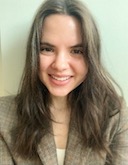 | Viviane Valdes, MPH, PhD
Viviane received her PhD in Psychology (Clinical Science) from Emory University in 2023, under the supervision of Dr. Linda W. Craighead. Her dissertation research explored the role of early life stress and parental psychopathology on child anxiety symptoms in the first five years of life. Prior to her doctorate training, she completed an M.P.H. in Epidemiology from New York University. She was very grateful to be back at the LCN for her post-doctoral training after having worked in the lab as a Harvard undergraduate and as a research coordinator. Viviane's current research in the Nelson lab focuses on the impact of early life stress/adversity and parental psychopathology on child and adolescent mental health outcomes. |